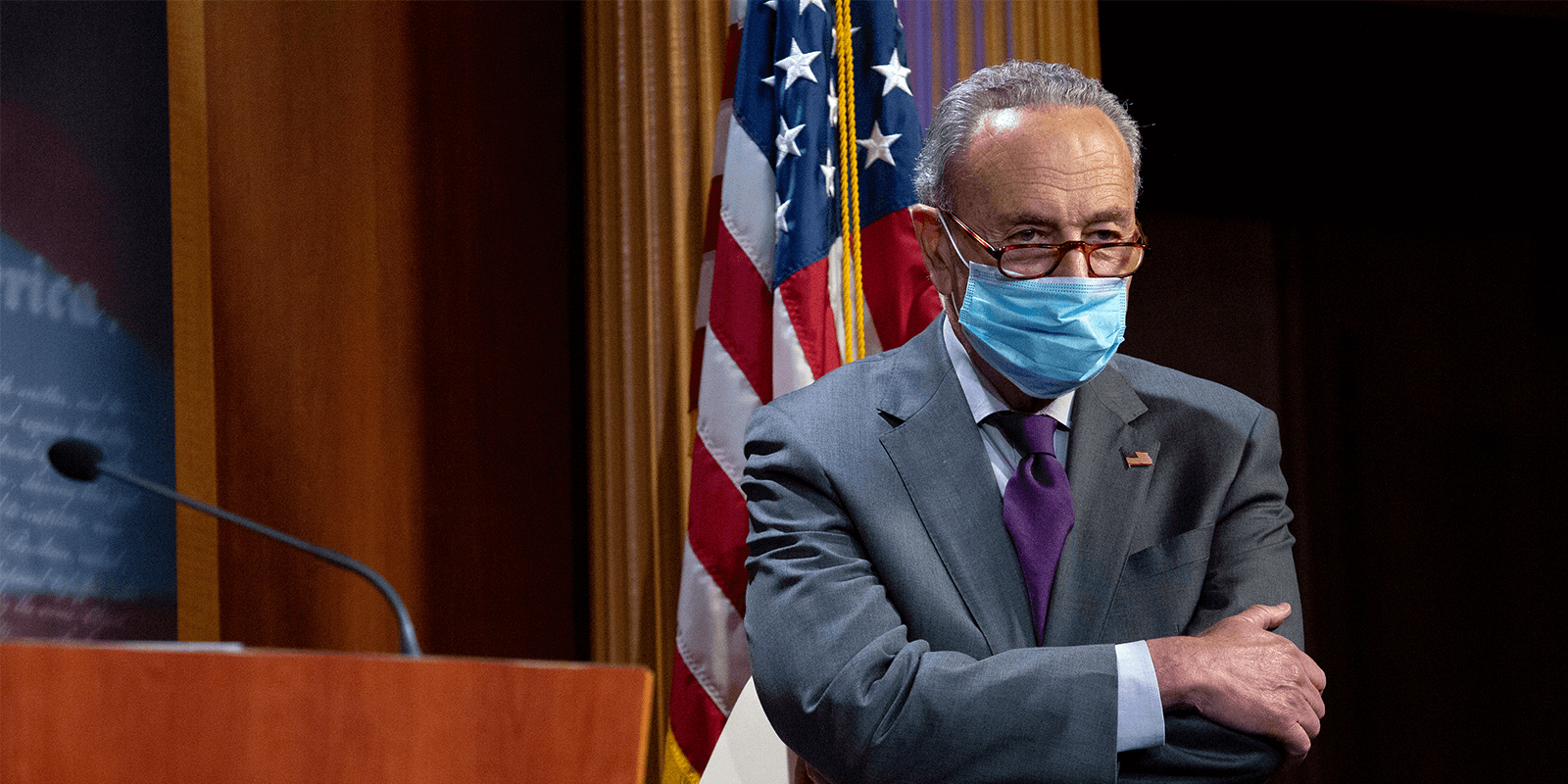Senate Minority Leader Chuck Schumer joined AFSCME President Lee Saunders and AFSCME members today in calling on Republicans in the Senate to agree to at least $1 trillion in federal aid to states, cities and towns.
“Time and time again, Leader Schumer has urged his Senate colleagues to take up the aid package passed by the House two months ago,” President Saunders said on the press call. “Unfortunately, his counterparts on the other side of the aisle have refused to do anything at all about the pain our communities are experiencing.”
Schumer praised public service employees and front-line workers for standing up for their communities and called on his Republican counterparts in the Senate to act now.
“Frontline workers … continue to risk their lives to beat the pandemic, serve their communities and safely reopen the economy,” Schumer said. “They deserve more than our thanks.”
Schumer strongly criticized Senate Majority Leader Mitch McConnell and fellow Republicans for “dragging their feet and refusing for months to take up the House-passed HEROES Act.”
“Here’s the assessment: People are losing their jobs,” Schumer added. Fifty-one million people have filed for unemployment since March, including public service workers, he said. “COVID is spreading. I ask Leader McConnell, ‘Is now the time to act?’ Speaker Pelosi and I sent a letter weeks ago to sit down and talk to us. We haven’t heard a peep.”
